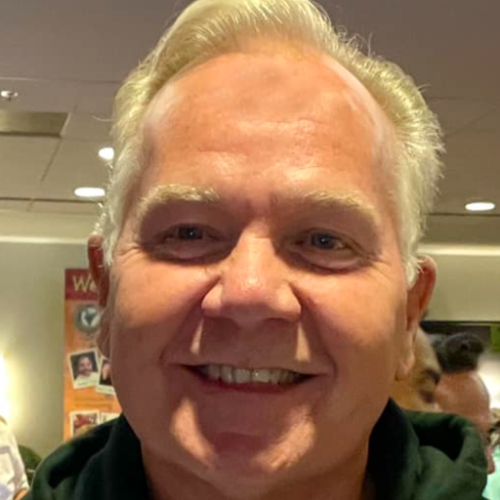-
Through Praise Pt 2 Series
Contributed by Michael Mccartney on Mar 22, 2019 (message contributor)
Summary: Joy needs to be experienced in the journey of life! But Joy, like any other attitude, can come and go. It is not guaranteed simply because we are born again believers. We must put ourselves in the places where experiencing joy is a possibility.
Series: We need to find joy in the journey!
Thesis of series: Joy needs to be experienced in the journey of life! But Joy, like any other attitude, can come and go. It is not guaranteed simply because we are born again believers. We must put ourselves in the places where experiencing joy is a possibility. We need to go after and find joy in our journey of life even in times of hardship and persecution.
Introduction:
Studying about joy in Scripture, looking at verses which speak of joy, helps build an understanding of how to put ourselves in places where it is possible to find and maintain an attitude of joy in our journey of life. We need to position ourselves in 2019 to seek after and find joy in the journey of life. God desires to help us find that joy!
• We can find Joy through laughter.
• We can find joy in God’s Love.
• But we also can find joy in praise to the Lord.
Sermon: Find joy in the journey through praise pt. 2!
Thesis: Gods greatest desire is that we – you and I - would act like Him and live with Him. God placed His nature in us and as a believer His presence lives in us (Gen 2:8). He desires to interact with us through praise which encompasses prayer and worship as well. We can discover with the help of the Lord joy in the journey of life – even when we face illness, death, persecution, trials and hardship.
Story from Insanity of God Tavian, pages 183-185:
Up four flights of creaking stairs, in a tiny apartment, we met a white-haired, stooped-over, shell of a man. It was clear that, earlier in his life, he had cast a longer shadow. He invited us into his apartment. The aged furnishings made the room feel like a museum. Tavian, the old man who lived there, took us back in time as he recounted his personal history. He said that during the days of Soviet occupation, in the post-World War II decade before his country established its own communist government, he had been part of a charismatic underground movement that rose from within the country’s traditional Orthodox Church. They called themselves “The Army of God.” Reading their Bibles, they discovered what Jesus had said about the sending of the Holy Spirit to enable His followers to carry out His will on earth. They came to understand that this same Holy Spirit would empower them to do the work of Christ’s Body—with or without the blessing of the Orthodox Church or the permission of the government. When they began to put those beliefs into practice, they, of course, attracted the attention of others. The established national church opposed their efforts. Soviet occupiers declared that they were dangerous. And their own new communist government accused them of being traitors…and many other believers were arrested and imprisoned. The established church was party to this incarceration. Tavian recalled many incidents of physical and emotional torture. Soviet indoctrination experts came from the USSR. to train this satellite nation’s police and prison officials. The different forms of torture were simple, but effective. For example, large amounts of salt were added to the prisoners’ food, while, at the same time, water allowances were reduced. Other times, prisoners were hung by the wrists; their feet were unable to touch the floor. Sleep deprivation was also common. For days on end, prisoners would be kept awake. They were beaten every time they started to fall asleep—or topple out of the chair. As was the case in other communist countries, the authorities tried to destroy the soul or at least the self-identity of those they saw as a threat. It took great energy for a prisoner to retain the smallest remnant of his or her original personality. Many lost that battle. Some prisoners were isolated in cells for years. At other times, jailors would pack fifty people in a cell designed to hold four people. Tavian spoke about the abuse in a straightforward, matter-of-fact way. The pain in his voice became clearer, however, as he told how leaders of his traditional church had betrayed and informed on the underground renewal movement. I heard even deeper anguish as he described the helpless grief when he learned that his wife had died. With a very different voice, however, he spoke of something that had helped him to stay strong. “I wrote many songs,” he told me. “God gave me words and melodies to strengthen and soothe my soul.” “How many songs did you write?” I asked. He smiled and replied, “Around six hundred!” That confirmed what I had already been told by the believers who insisted that I meet this man. They had already told me that Tavian’s name was known by believers all over their country. Before communism, the Orthodox Church had used the ancient music of their tradition in worship. Protestant believers normally transliterated western hymns and songs of faith to sing in their worship. Since Tavian had been released from prison, however, believers were now singing much of this old man’s worship music in their worship services every Sunday morning.

 Sermon Central
Sermon Central



